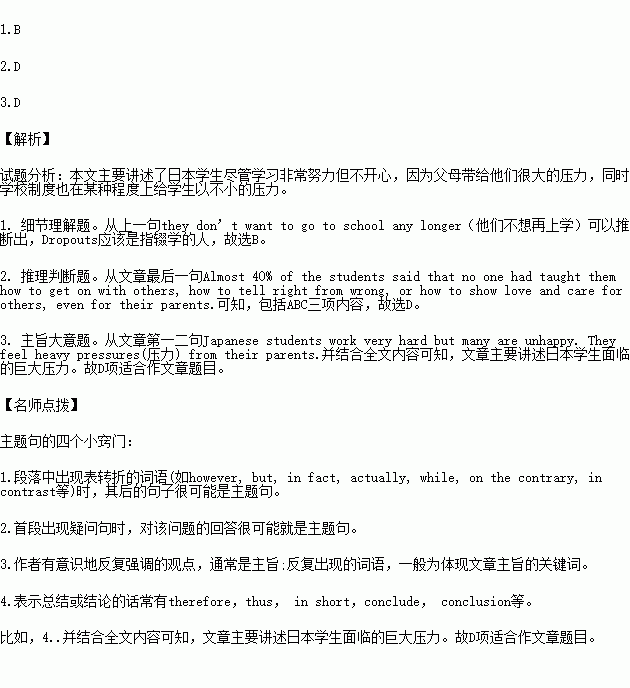题目内容
Japanese students work very hard but many are unhappy. They feel heavy pressures from their parents. Most students are always told to study harder and better so that they can live a wonderful life in the future. Though this may be a good idea for those very bright students, it can have terrible results for many students who are not gifted (有天赋的) enough. Many of them have tried very hard at school but have failed in the exams and have their parents lose hope. These students feel sad and they don't want to go to school anymore. They easily become dropouts.
It is surprising that though most Japanese parents are worried about their children, they do not help them in any way. Many parents feel that they are not able to help their children and that it is the teachers' job to help their children. To make matters worse, a lot of parents send their children to those schools opening in evenings or on weekends—they only help the students to pass their exams and never teach them how to understand life and the world.
Many Japanese schools usually have rules about everything, from the students' hair to their clothes and things in their schoolbags. Many child psychologists now think that such strict rules are harmful to the feelings of the students. Almost 40% of the students said that no one had taught them how to get on with others, how to tell right from wrong, or how to show love and care for others, even for their parents.
1.The underlined word “dropouts” are those who ________.
A. make troubles in and out of schools
B. go about or stay at home instead of being at school
C. try hard but always fail in the exams
D. lose hope but always fail in the exams
2.According to the text, it’s necessary to teach students ________.
A. how to study well
B. how to get on with others
C. to show love and care for others
D. all of above
3.Which of the following can be the best title of the text?
A. The Trouble in Japanese Schools
B. The Problems of Japanese Students
C. Education in Japan
D. The Pressures on the Students in Japan
 阅读快车系列答案
阅读快车系列答案
